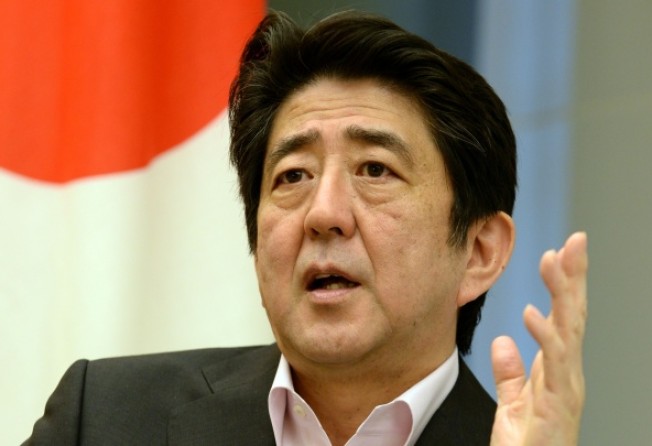Abe moves to set up national security council

Japanese Prime Minister Shinzo Abe’s government yesterday approved legislation to set up a national security council, moving to strengthen his grip on foreign policy in the face of North Korean missile threats and a territorial dispute with China.
The hawkish Abe has pursued the move to centralise information-gathering and speed up decision-making.
“We have put in place a structure that allows Japan to comprehensively monitor the country’s security,” Chief Cabinet Secretary Yoshihide Suga said.
The bills will be submitted to this session of parliament, which ends on June 26, for possible enactment in an extraordinary Diet session in the autumn.
The need for a centralised national security body has been highlighted by North Korea’s recent sabre-rattling and a deadly January raid by jihadists on a natural gas plant in Algeria.
Japan struggled to obtain information on the Algeria hostage crisis, where 10 Japanese nationals were among three dozen foreign workers killed during a siege.
In the East China Sea, a maritime territorial dispute has escalated to the point where Beijing and Tokyo scramble fighter jets and patrol ships shadow each other.
Similar legislation was presented to parliament six years ago when Abe served his first term as prime minister, but it was dropped after his resignation in the wake of cabinet-level scandals and his Liberal Democratic Party’s rout in an election.
Referring to the Sino-Japanese island dispute, former US deputy secretary of state Richard Armitage told a seminar last month that several Japanese ministries were involved but there was “no process which can get all the information ... to the prime minister in a timely fashion so he can make a decision”.
Under the security council framework, the prime minister, chief cabinet secretary, foreign and defence ministers would meet regularly to hammer out strategy, while relevant ministers would be called together to respond to emergency situations.
Abe has also proposed amending the constitution to loosen restraints on the military.
Koichi Oizumi, professor at Aomori Chuo Gakuin University, said the creation of the national security council would be a step in the right direction but Japan would still face the tough task of training intelligence specialists.